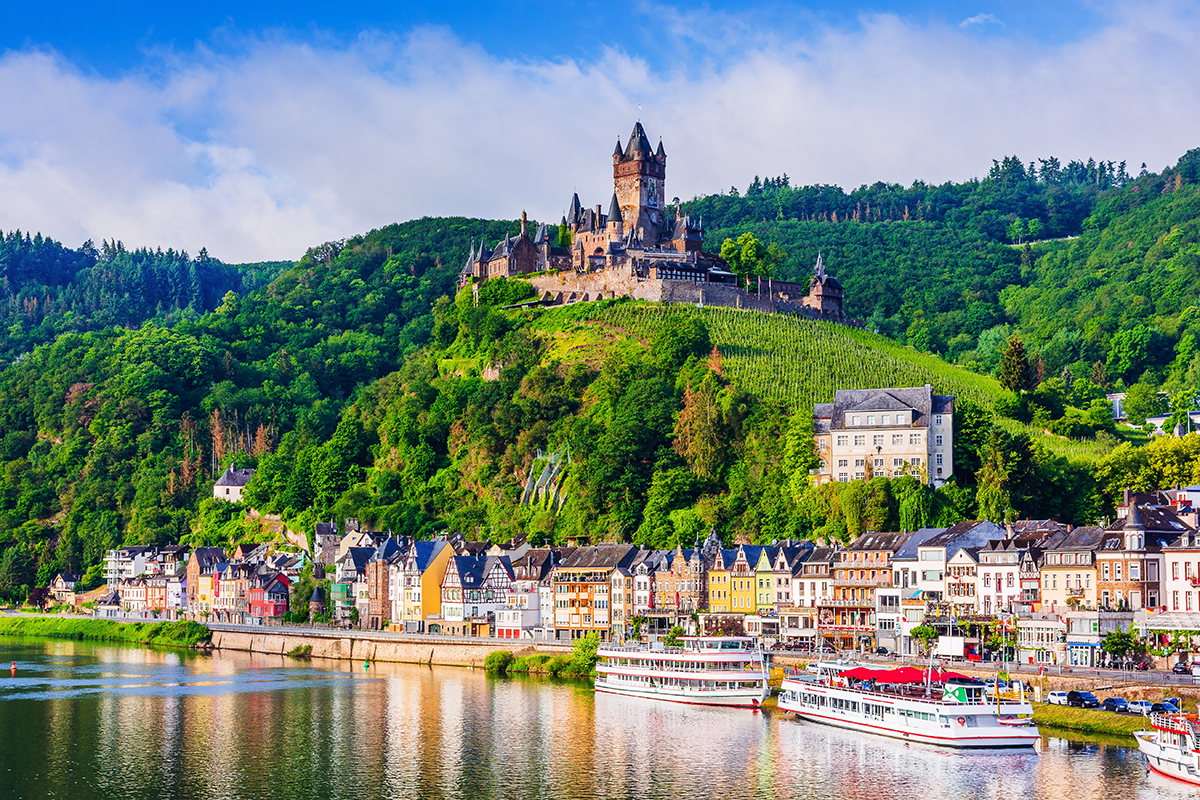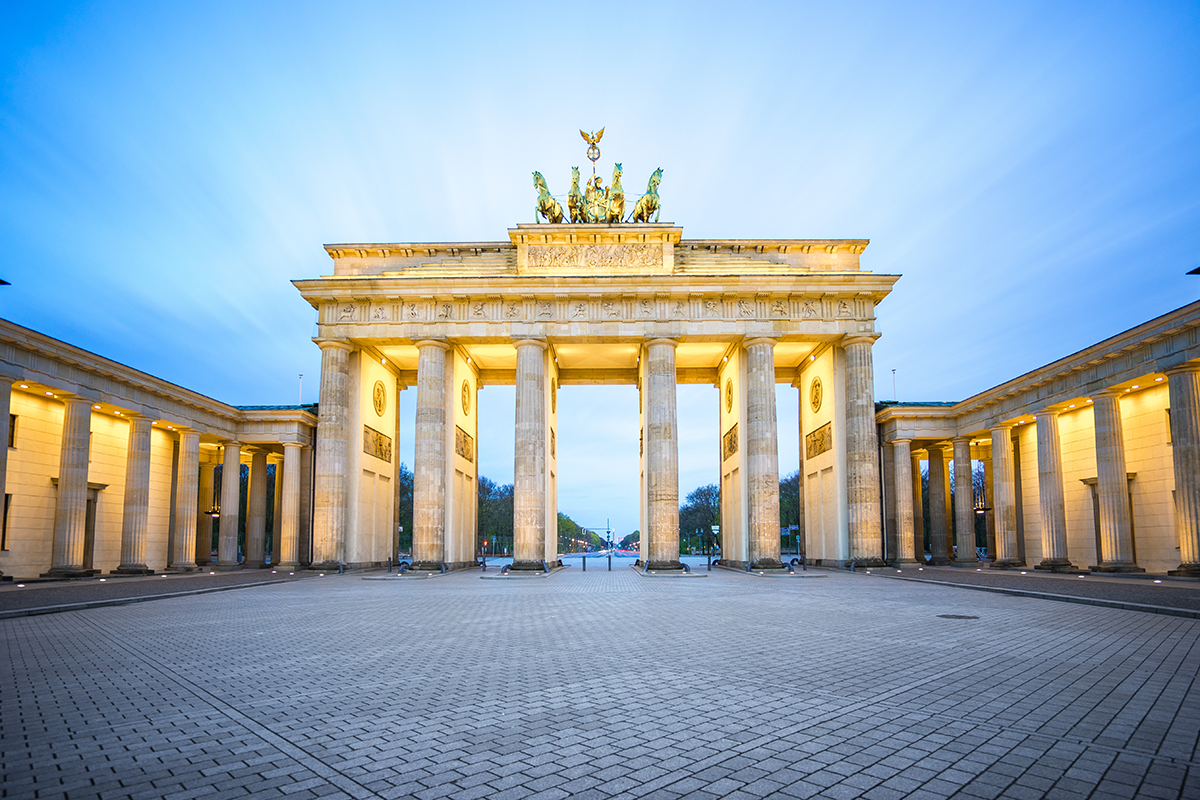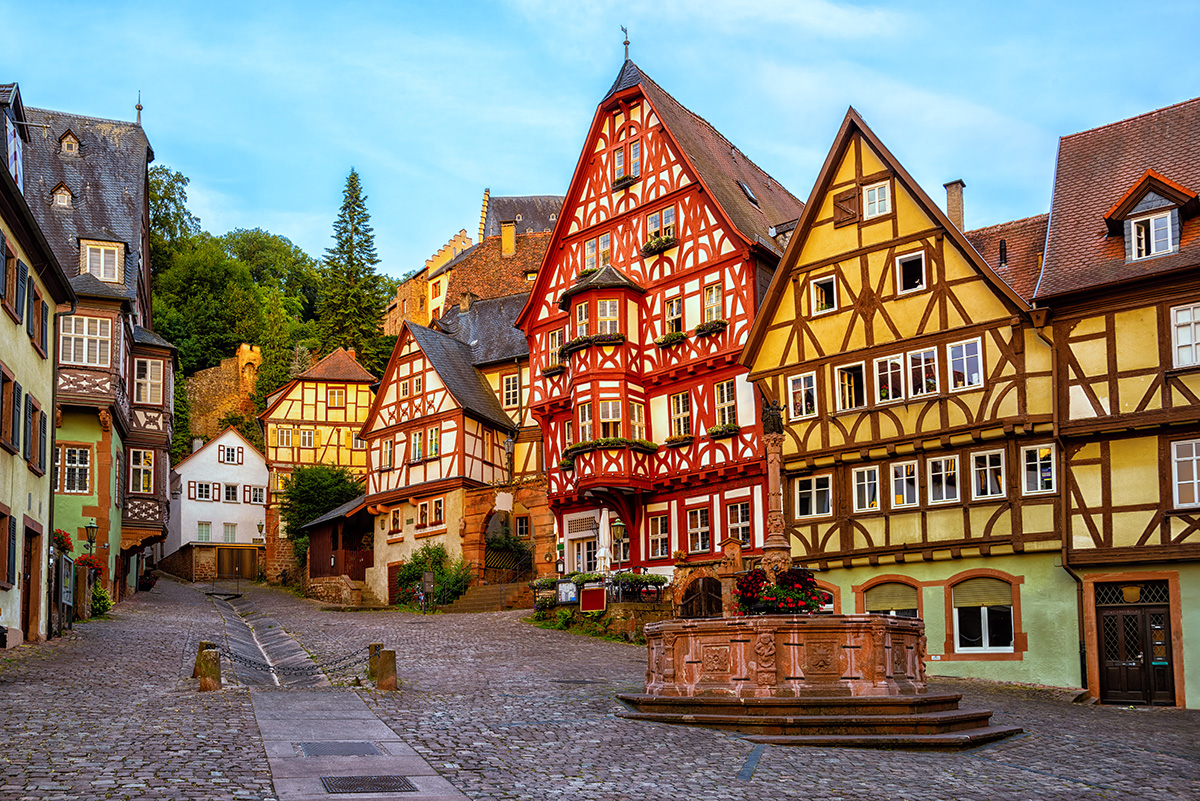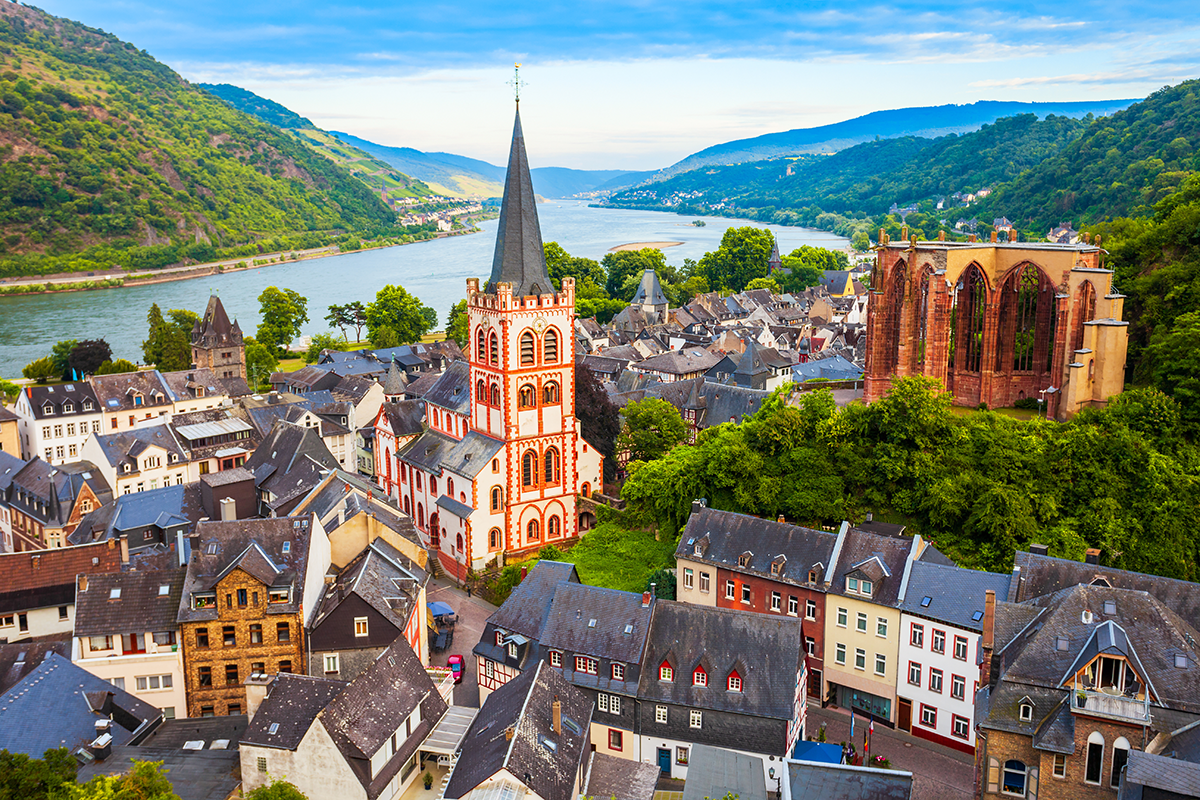How to plan a trip to Germany
Planning a trip to Germany? First thing you do, throw away the calendar. There’s no bad time to visit this scenic, accessible, popular European destination.
Germany may lack the romance of France, but that’s about all it lacks. You want castles? Germany has riverbanks full of them. Good food and drink? Germany specializes in filling you up. Scenery? Germany has mountains, forests and seashores. History? From churches to museums, Germany’s got it.
Germany is also one of the safest countries in the world. It is a habitual top-10 resident in our rankings of the world’s safest places.
Plus, verified sources like GeoSure, Numbeo, the Global Peace Index, and the State Department all put Germany at or near the top when it comes to worldwide traveler safety.
Germany really does have just about everything a traveler is looking for in a destination.

When to visit Germany
As mentioned, Germany is a wonderful place to visit any time of year.
Winter
You may be thinking, “But doesn’t it get cold in Germany?” Yes, but the winters are more Philadelphia cold (quick-melting snow, near-freezing temps) than Minneapolis cold, and there are so many wonderful things to do in Germany in the winter that you don’t mind.
For instance, you can:
- Ski the Alps
- Hit Berlin’s museums, galleries, historic sites, and nightspots
- Tour the Christmas markets along the Rhine
- Take trains across the country and hop off when a village tickles your fancy
Because you’re traveling during the offseason, tourists are fewer and prices are lower. But the sights are still lovely.
Spring
No matter how harsh the winter, the country thaws out in mid- to late March, and that’s a perfect time to visit, with temps often in the 60s and crowds smaller at iconic sights like the Kölner Dom (Cologne Cathedral). Spring is also the time for late-season Alpine skiing. The longer days and higher temps really make a difference, and the warming sun will remind you that you’re actually in southern Europe.
Summer
Summer is naturally the peak travel season in Germany, which means crowds at Rhine castles, in Munich beer gardens and at Berlin galleries.
This is your chance to explore some of the less-visited places in Germany, which generally means eastern Germany.
The half of the country ruled by the Communists for more than 40 years still bears the marks of that rule in the form of charming cinder-block architecture and fewer big festivals.
For a change of pace, consider visiting:
- Dresden: The home of Dresden china as well as the stunning Baroque Zwinger Palace and Semperoper opera house
- Leipzig: Home to the Bach Museum, great cafes and a burgeoning arts scene
- Weimar: The birthplace of the Bauhaus movement
- The Baltic coast: A rugged, semi-wild area with imposing chalk cliffs and the UNESCO World Heritage city of Straslund
Fall
Fall is a pleasant time to visit all of Germany. Strolling through Dusseldorf along the banks of the Rhine on a pleasant October evening is a delightful way to pass the time.
Late-season river cruises are a great way to see Germany in autumn – and if not a river cruise, then definitely a long train ride.
If that’s not your seidel of beer, the NFL holds games in Berlin most autumns, and the experience is both familiar and exhilaratingly new.
With temps in the 50s well into November, Germany in the fall is an easy choice.

Getting your documents in order
Obviously, you need a passport to get into Germany. If your passport is set to expire in the next six months, renew it before departure.
Germany is also part of the Schengen Area, a collection of European states that have banded together to make it easier for travelers to cross borders without having to check passports at every stop.
You don’t have to apply for a Schengen visa if you’re staying in the Schengen Area for less than 90 days. You also don’t have to pay for an electronic travel authorization if you’re traveling any time before April 2027. (The implementation date got pushed back again.)
The Schengen Visa site has more information on application procedures for Americans.
You should also prep to carry:
- A copy of your prescriptions
- Your itinerary
- Hard copies of tickets
- Your travel insurance policy
- Emergency numbers for:
-
- Your family contacts
-
- Doctors and other medical professionals
-
- Children and others back home
How to get around Germany
As you’re planning your vacation in Germany, note: It’s an easy place to get around.
Driving
You’ve likely heard of the autobahn, German’s high-speed equivalent of the interstate. It’s a real thing, and it’s true there are sections with no posted speed limits, but if you’re expecting to see a steady stream of tricked-out Porsches and Mercedes hitting 125 in the straightaways you’re likely to be disappointed.
The reality is a lot of trucks and good prudent German drivers piloting VW Golfs at a steady 65 mph.
With that said, the autobahns are clearly marked and a cinch to navigate. In addition, rental cars are plentiful and easy to reserve, as part of your tour or from any of the major rental agencies.
One last note on driving: The famed Nürburgring racecourse is open to anyone who wants a drive around (schedule permitting, of course).
It’s not the same experience in a Dacia as a Ferrari, but it’s cool nonetheless.
Trains
Cruise the Rhine and the one thing you’ll notice in addition to all the castles: There are passenger trains flying along the shoreline every five minutes.
Deutsche Bahn (DB) connects virtually every town and city – and being German, the trains are almost always on time.
If you love the idea, consider a German Rail Pass for unlimited travel.
Meanwhile, the cities offer excellent public transportation with integrated tickets for buses, trams, subways, and regional trains. The DB Navigator app or the Transit app make navigating a breeze.

Where to stay
Go in the off-season and you’ll have your pick of lodgings, ranging from mild to wild.
Germany’s luxury hotels live up to the name, with world-class service in the European manner. Expect well-dressed doormen and maître ds, and a lot of bowing.
If you want something a lot less formal, Germany has reached Peak Hostel. The student-centered lodgings are everywhere and are an inexpensive way to make new friends.
For something even more traditional, family-run guesthouses (Pensionen) provide authentic experiences with personal touches.
And if any of these choices are too mild for your wild, there’s no shortage of crazy rental options in Germany. The cardboard box in the middle of the street that was a mainstay of Airbnb’s listings for Berlin is no more, alas, but you can stay …
Must-see destinations across Germany
Berlin: Germany’s capital is the place to explore history while you indulge your wild side with cutting-edge music, art and theater. High points include:
- The Brandenburg Gate
- The East Side Gallery
- The Berlin Wall Memorial
- Checkpoint Charlie
In addition, as mentioned earlier, the NFL comes to Berlin almost every year, so if you prefer football to fußball you won’t be disappointed.
Munich: Bavaria's capital delivers gemütlichkeit by the steinful. You feel the rosy-cheeked joy as you stroll through its old town, past the glockenspiel-adorned town hall to the famous Hofbräuhaus beer hall. Oktoberfest is crazy, but the beer gardens and lederhosen are there for you year-round.
The Romantic Road: This scenic route through southern Germany passes through walled medieval towns like Rothenburg ob der Tauber with stops at fairy-tale castles like the fabled Neuschwanstein Castle, the inspiration for Disney's Sleeping Beauty Castle.
Rhine Valley: A river must be special to be named a UNESCO World Heritage Site. The valley of the Rhine more than qualifies. Sip a famed Rudesheimer coffee while you float past vineyard-covered hills, speeding trains, medieval castles that range from ruins to restored, and charming towns like Mainz and St. Goar.
Black Forest: Climate change and overtourism have affected accessibility, but when the gates are open you can hike through the famous woods into villages to sample Black Forest cake and shop for locally made cuckoo clocks.

Cultural tips and etiquette
Many people speak English in Germany but learning a few simple German phrases can go a long way, even if it’s just “danke” (thank you) and “bitte” (please).
German is infamous for its mile-long words that mash together four or five individual words. Consider “Donaudampfschifffahrtsgesellschaftskapitän,” which means “Danube steamship company captain.”
Google Translate can help with brain-melters like these, in addition to the garden-variety 18-letter-long words.
In addition:
- Germans value punctuality, so arrive on time for tours, reservations, and appointments
- When dining out, catch your server's attention with a raised hand
- Follow local sorting systems for trash and recyclables
- On escalators, stand right and walk left
- Cash remains important, since many smaller establishments don't accept cards
- When bicycling, use hand signals
Travel Insurance for Germany travel
Along with deciding what to see and where to stay, include travel insurance as part of the process of planning a trip to Germany.
Berkshire Hathaway Travel Protection’s industry-leading array of plans can cover any flavor of German vacation, from river cruises to Alpine skiing, with coverage for trip interruption and cancellation, medical emergencies, lost luggage, travel delays, and much more.
Get a quote, and before you know it, you’ll have the travel protection you need.
Have a great trip! Auf wiedersehen! Bye bye!
Questions About Travel Insurance?
Check out our online guide, "What Is Travel Insurance All About?" We've provided in-depth answers to all your travel insurance questions, starting with the basics.